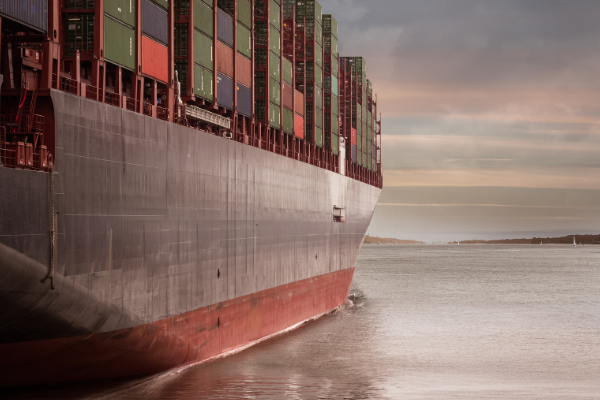Your company faces a competitive marketplace, but the greatest threat to its continued success may be lurking in your supply chain. From fines to operational setbacks, supply chain risk can impact your company in many ways.
Risk can damage your company’s image, or seal your products behind a mess of red tape. It can run you afoul of enforcement bodies with the authority to indict your company for actions occurring far upstream in your supply chain. In a competitive marketplace, these incidents can destroy your company.
As the regulatory landscape expands, companies are being exposed to more risk from indirect suppliers. Generally, it can be sorted into three categories: financial, reputational and operational. Each of these risk areas can harm your company and its products in a variety of ways.
Business & Continuity Risk
Risk from indirect suppliers can have a devastating impact on your operations and manufacturing workflows. If enforcement authorities shut down a tier-three factory or materials supplier due to labor violations, you could fail to produce the stock needed to meet orders. Supply chain engagement can help identify and mitigate this risk before an incident occurs, redirecting resources toward low-risk vendors.
If your company manufactures complex products, they could be introduced to a range of hazardous substances through its subparts. While some of these parts could be a small percentage of your final assembly, regulations such as the Registration, Evaluation, Authorisation and Restriction of Chemicals (REACH) Regulation evaluate substance thresholds against the original subpart composition — not the final product. A small part could take your entire product off the European Union (EU) market.
Human Rights & Reputational Damage
Supply chain due diligence requirements can be difficult to navigate, but they support essential initiatives. Human rights regulations protect workers and establish safe working conditions. Product compliance regulations protect the environment and the end user. And vendor management programs ensure your upstream suppliers are respecting company supply chain due diligence standards.
Whether you’re selling products directly to the end-user or selling into a larger product assembly, your clients and stakeholders care about whether or not you’re respecting due diligence obligations. When the Rana Plaza building in Bangladesh collapsed, for example, clothing companies sourcing goods from the location became the subject of a public investigation into whether or not the disaster could have been prevented.
Meanwhile, companies that have learned from past mistakes to become leaders in global corporate social responsibility, such as Nike, watch their stock soar as a result of their corporate social responsibility efforts.
Financial Penalties & Fines
With new legislation such as the Countering America’s Adversaries Through Sanctions Act, there are even more ways that companies can be financially penalized as a result of failure to perform due diligence. Regardless of how far down supply lines the incident occurs, if any of your products are found to contain materials sourced from North Korea or China, your goods could be impounded, leading to loss of stock, contracts and further fines.
In 2019, e.l.f. Cosmetics was fined $40 million USD after it was discovered that 156 shipments of false eyelash kits from two China-based suppliers were actually sourced from North Korea. The Office of Foreign Assets Control (OFAC) agreed to knock the fine down to $1 million USD, but only after the cosmetics company agreed to implement due diligence processes and safeguards.
Furthermore, most forms of operational and reputational damage have lasting financial impacts at some point down the line. Whether your company is experiencing business disruptions as a result of a trade dispute or a restricted substance, misdeeds in your supply chain could influence stakeholders to disengage from your brand. And the result can always be quantified monetarily in your bottom line. The resulting damage always outweighs the cost of supply chain data management.
Companies implementing strong due diligence programs to address corporate social responsibility, product compliance and vendor management can identify and mitigate the full range of indirect risk they may be exposed to on the global supplier landscape.
Although no company could ever be completely free of risk, due diligence in alignment with emerging best practices can go a long way toward showing enforcement bodies, investors and consumers that you’ve done your part to bring transparency to your supply chain.
To learn more about how indirect risk can impact your company,
.










